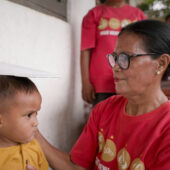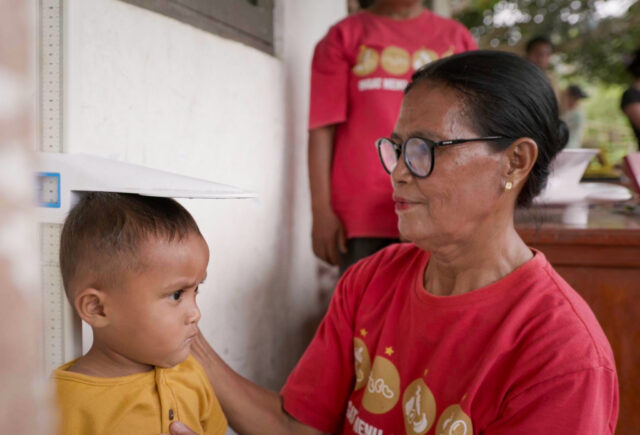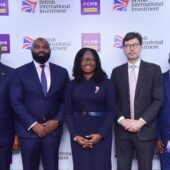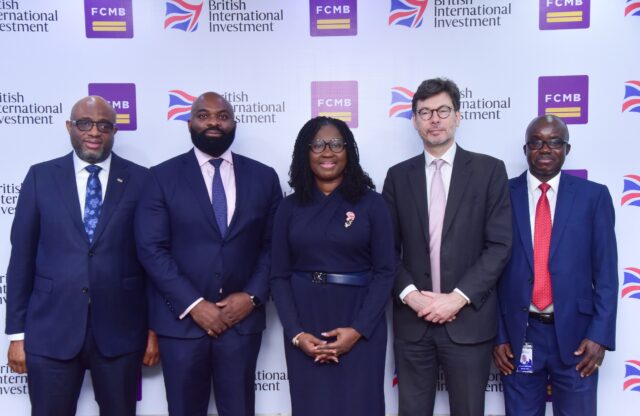Which conventional banks are willing to provide a loan to a cash-poor company hiring immigrants to make clothes? Not a single one, was Thami Schweichler’s bitter experience. But Generous Minds offered an alternative path to investors.

For Makers Unite everything started with the urge to create awareness regarding the refugee crisis in 2015. Many Europeans saw the orange life vests on the Greek islands as a symbol of threat and social unrest. To Dutch social entrepreneur Thami Schweichler, they were a symbol of life and new beginnings.
After the first load of life vests was shipped to Schweichler in Amsterdam in 2016, Makers Unite got to work. The company focuses on making products out of reused materials; orange laptop cases out of refugee life vests and municipal clothing containers out of old jeans – thus creating job opportunities for newcomers and locals alike.
Newcomer career coaching and awareness campaigns – such as making orange ribbons to address the refugee crisis – have been part of the mix since the company’s inception.

A long-term plan
The first couple of years financiers were happy to fund the young social enterprise. But when Makers Unite needed growth capital and investments got riskier, they were met by silence.
“The social enterprise landscape is comparatively young in the Netherlands so investors have been quite hesitant,” said the Makers Unite founder and managing director.
“I don’t know how many pitch events I’ve been to where they told me: ‘You are too early for commercial investment’, and the week after: ‘You are too late for grants’.”
That’s when Schweichler teamed up with the Amsterdam-based cooperative Generous Minds.
Together they set up a long term plan for what Makers Unite could achieve and would aspire to in the coming years. “What’s unique is that Generous Minds has this very broad approach to the entire company, and that the collaboration stretches over several years,” said Schweichler.
Banks and governments
With a background in product design, social entrepreneurship and procurement, achieving positive societal change is a recurring theme in Schweichler’s curriculum.
“It is my firm belief that you should be able to do that without grants and subsidies. Down the road, we want to be able to stand on our own feet as a company – while making an impact, of course,” he said.
Becoming a financially profitable social enterprise is hard and Makers Unite isn’t there yet. According to Schweichler, Generous Minds offers an alternative path for impact ventures to find investors: “Just like me, they see money as a means (to achieve social change, ed), not as a goal in itself.”
Makers Unite was the first company to be included in Generous Minds’ so-called integrated capital lab. By participating, the company’s mission and needs were brought to the attention of powerful potential financiers such as the DOEN Foundation, the ABN Amro and Triodos banks, the Netherlands Enterprise Agency (RVO) and the Municipality of Amsterdam.
So far Generous Minds have helped Makers Unite attract around €750,000 from financiers. The funding is a mix of subsidies, equity and commercial loans from local and national governments, investment funds, private investors and banks.
“Don’t need to shop around”
Makers Unite is hiring a Generous Minds advisor at a fixed hourly rate, an arrangement that is typical for the way Generous Minds works.
“These advisors have been in contact with Thami for a couple of years now. One of them is a primary contact person and can give advice on which expertise from our collective could be helpful to Makers Unite,” said Generous Minds founder Ronald Beuk.
“At one stage it was product development and marketing and at a later stage it was financial strategy and legal support.”

The way Ronald Beuk and Thami Schweichler describe their collaboration is reminiscent of a long-term mentorship. “If we need new funding, we no longer have to shop around and pitch our case at individual banks. Instead, Generous Minds has become this vehicle that brings financiers and us together,” Schweichler explained.
Clout
2020 was a difficult year for Makers Unite. Ice cream company Ben & Jerry’s pulled the plug on a potential collaboration and a planned move into the events business proved ill fated. Revenue (half of which was subsidies) dropped by 50% to €300,000.
“We had zero customers”
But things are beginning to look up. Meeting up with big financiers on a regular basis is helping Makers Unite pull through. For one thing, Ben & Jerry’s finally came around with a new deal; the ice cream maker’s t-shirts and other branded items are now produced by the Amsterdam enterprise.
And Makers Unite are currently in the last phase of securing new credit to scale up their import of fabrics. So far they have obtained €325,000 in a convertible loan from the Dutch Enterprise Agency RVO, one of the members of Generous Minds Integrated Capital Lab.






